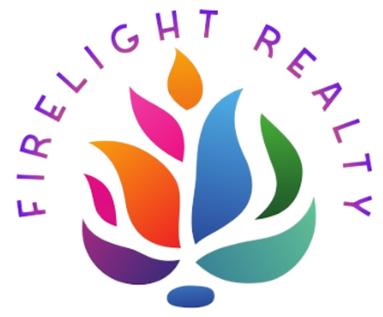Are you a real estate professional holding a voluntary inactive real estate license, wondering about your next move? You’re in the right place! This guide is here to illuminate the path forward, offering the flexibility to explore personal interests while keeping the door open for future opportunities in real estate. Let’s unravel what this means, how you can make the most of this status, and how to transition seamlessly into an active role when you’re ready.
Understanding the Voluntary Inactive Real Estate License

A voluntary inactive real estate license in Florida indicates that you have opted not to participate in real estate activities with a sponsoring broker at this time. Nonetheless, your license remains current and in good standing, which allows you the flexibility to resume your real estate career whenever you choose.
While your real estate activities are on hold, remember to renew your license every two years to keep it in good standing. During this period, you’re not allowed to conduct any real estate operations until your license is activated under a sponsoring broker again.
In Florida, continuing education is crucial to maintaining your voluntary inactive real estate license. Sales associates require 45 hours of post-license education, and brokers need 60 hours for their first renewal. These educational commitments ensure you’re equipped with up-to-date knowledge when you decide to rejoin the real estate battlefield.
Navigating the Renewal Process for an Inactive License
Navigating the renewal process for a voluntary inactive real estate license is essential to maintaining its validity and readiness for future activation. In Florida, license renewal occurs every two years, with deadlines falling on March 31st or September 30th, depending on the original issue date.
To avoid any lapses in your license status, adhere to these renewal cycles and deadlines diligently. Keeping track of these dates and meeting the necessary requirements ensures a seamless reactivation process whenever you choose to return to active practice.
It’s crucial to complete the required continuing education hours within the renewal period. For sales associates, this means 45 hours for the first renewal, while brokers must complete 60 hours. After the initial renewal, both types require 14 hours of continuing education for each subsequent renewal cycle.
The Role of Continuing Education in a Voluntary Inactive License
Continuing education plays a vital role in maintaining a voluntary inactive real estate license, ensuring you’re equipped with the latest industry knowledge and skills when you decide to reactivate. By fulfilling the educational requirements, you demonstrate your commitment to professionalism and readiness to resume your real estate career.
Engaging in continuing education keeps you updated on market trends, regulatory changes, and best practices. This knowledge is invaluable, enhancing your ability to make informed decisions and providing a competitive edge when you return to active practice.
Additionally, continuing education courses offer opportunities to expand your skill set and explore new areas of the real estate industry. Whether it’s learning about emerging technologies, refining negotiation techniques, or gaining insights into sustainable real estate practices, these courses contribute to your overall growth and development as a real estate professional.
Facing Challenges with Realtor Dues and MLS Fees?
Activate Your License and Start Earning as a Referral Agent
Transitioning from a voluntary inactive real estate license to an active referral agent offers an exciting pathway to re-engage with the industry. Serving as a referral agent allows you to utilize your real estate expertise without the full demands of active selling. By connecting buyers or sellers with active agents, you enjoy earning commissions on successful referrals, making it an appealing option for those seeking flexibility.
Becoming a referral agent provides the freedom to work at your own pace, focusing on networking and building relationships with industry professionals. This role is ideal if you’re balancing other commitments or planning a gradual return to real estate, allowing you to stay connected and informed without the intensity of daily sales activities.
To excel as a referral agent, start by cultivating relationships with reputable agents and brokers. These connections are vital for facilitating successful referrals and closing deals. Additionally, keep abreast of market trends and maintain an updated knowledge base about the real estate landscape, enhancing your credibility and value as a referral agent.
Detailed Steps to Activate Your Voluntary Inactive License
Activating your voluntary inactive real estate license in Florida requires a few essential steps. Initially, you must secure a sponsoring broker who will oversee your activities and provide the necessary supervision required by the Florida Department of Business and Professional Regulation (DBPR). Finding the right broker crucial as they play a significant role in your transition back to active practice.
After identifying a suitable broker, register your association with them through the DBPR. Ensure all your continuing education requirements are met, including completing the necessary post-license or continuing education courses. For first-time renewals, this means 45 or 60 hours, depending on your license type, followed by the standard 14 hours of continuing education thereafter.
Insights on Maintaining an Active License as a Referral Agent
Maintaining an active real estate license as a referral agent comes with its own set of responsibilities. While the role offers more flexibility than traditional real estate sales, staying informed and engaged is crucial for success. Regularly updating your knowledge about market trends, regulations, and industry best practices will ensure you remain a valuable asset to your network.
Additionally, maintaining strong relationships with active agents and brokers is essential. Your ability to facilitate successful referrals relies on trust and mutual respect within your professional circle. Ensuring that your connections are reliable and reputable will help you build a solid reputation as a referral agent.
Continuing education remains a critical aspect of maintaining an active license. Although your role might not require daily engagement with real estate transactions, staying current with your educational requirements will prepare you for any future opportunities that may arise. This commitment to ongoing learning not only enhances your skills but also reinforces your position within the industry.
Building a Network as a Referral Agent

Building a robust network is crucial for success as a referral agent. Your network is your lifeline in facilitating successful referrals and establishing yourself as a trusted resource within the real estate community.
Start by reaching out to fellow real estate professionals, including agents, brokers, and industry leaders. Attend networking events, participate in real estate forums, and leverage social media platforms to connect with potential collaborators and clients.
Cultivating strong relationships within your network enhances your credibility and increases the likelihood of receiving quality referrals. Trust and mutual respect are the foundation of successful collaborations, ensuring that your connections view you as a valuable asset to their business endeavors.
Staying Informed on Market Trends
Staying informed on market trends is essential for maintaining relevance and effectiveness as a referral agent. The real estate landscape is constantly evolving, influenced by economic shifts, technological advancements, and changing consumer preferences.
To stay ahead of the curve, actively seek out information from reputable sources such as industry publications, online forums, and professional associations. Engaging in continuous learning and staying updated on market trends empowers you to provide valuable insights and make informed recommendations to your network.
By positioning yourself as a knowledgeable resource, you enhance your credibility and value as a referral agent. Clients and colleagues appreciate working with someone who understands current market dynamics and can offer strategic guidance in navigating the complexities of the real estate industry.
Conclusion
Navigating the real estate landscape with a voluntary inactive real estate license opens up unique opportunities for growth and flexibility. Whether you choose to reactivate your license and resume active practice or pivot into the role of a referral agent, understanding the process and strategy involved is crucial. By following the outlined steps, staying informed, and utilizing your network, you can successfully transition from inactivity to a thriving real estate career. Take the next step today to explore the dynamic possibilities that await you in the world of real estate.
Frequently Asked Questions
What is a voluntary inactive real estate license?
A voluntary inactive real estate license is a license status in which the licensee is in good standing but is not active under a sponsoring broker.
How do I reactivate my voluntary inactive real estate license?
To reactivate your voluntary inactive real estate license, ensure your continuing education requirements are current, find a sponsoring broker, submit a reactivation application to your state’s real estate commission, and pay any associated fees. Once approved, you can return to active status.
Can I earn income with a voluntary inactive real estate license?
No, you will need to return to active status at a referral brokerage in order to earn referral commissions.
What are the limitations of holding a voluntary inactive real estate license?
While on voluntary inactive status, you cannot participate in most real estate activities, such as negotiating deals, completing transactions, representing clients or earning commissions from real estate activities. Understanding these limitations is crucial for planning your return to active status.
If you’re contemplating quitting as realtor and transitioning from traditional real estate practices, now is the perfect time to consider joining Firelight Realty as a referral agent. With our unique model, you can maintain your connection to the industry without the hassle of managing listings, open houses, or extensive paperwork. At Firelight Realty, we provide a supportive environment that allows you to focus on building client relationships while earning competitive referral fees. Our comprehensive training and resources will equip you with the tools needed to thrive in this new role, making the shift not only beneficial but seamless. Embrace the opportunity to redefine your career and enjoy greater flexibility with Firelight Realty.
Recently Featured Firelight Realty Posts
Become a Top Agent: Leveraging Referral Commissions for Business Growth
17 Open House Ideas that captivate: Free Open House Sign-in Sheet
Finding Real Estate Success with the Right Sponsoring Broker
17 Strategies for How to Generate Real Estate Leads: Essential Tips for Every Referral Agent



